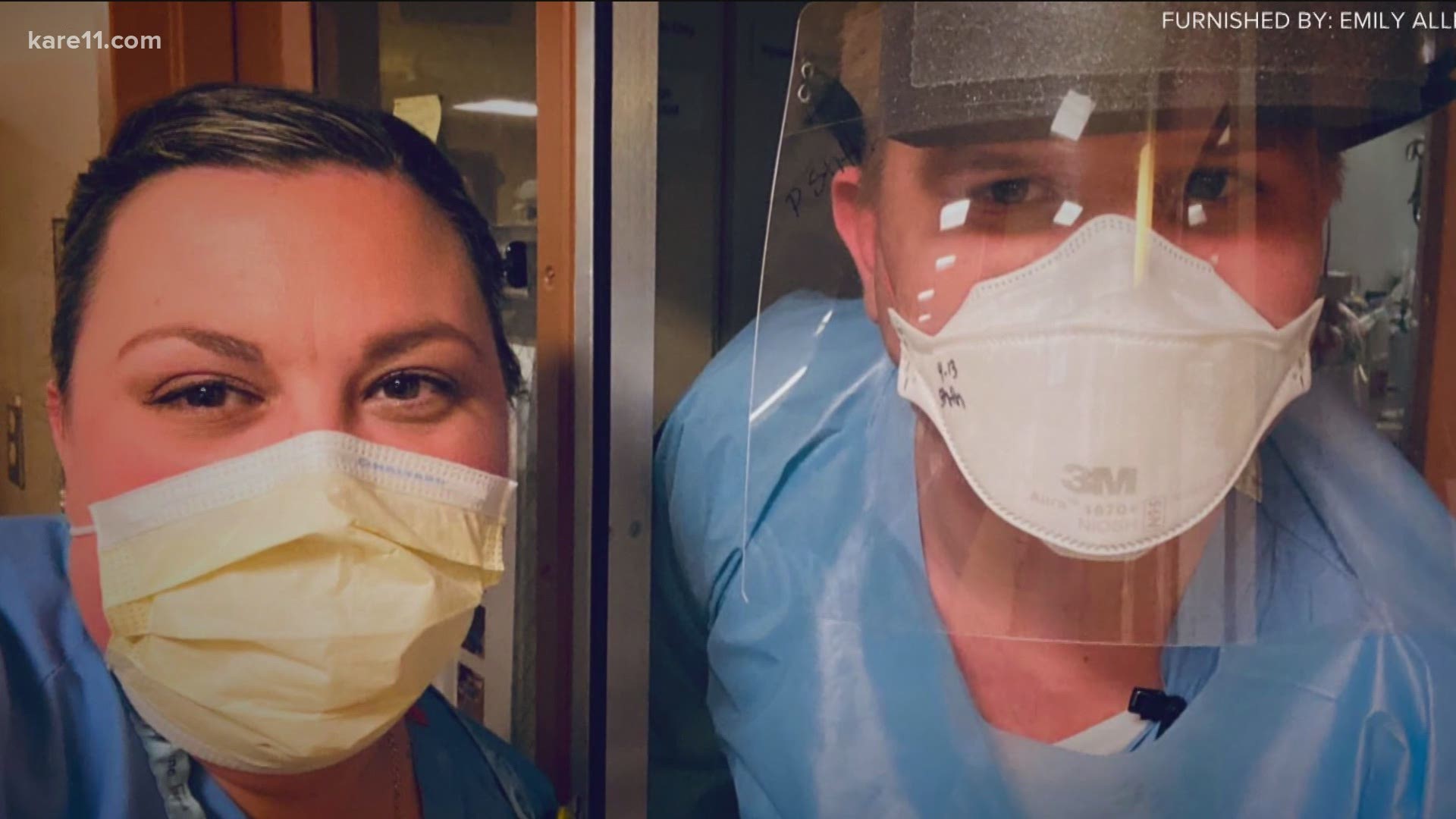On Monday, Minnesota Department of Health Commissioner, Jan Malcolm, said the record surge in COVID-19 cases in Minnesota has already resulted in a record 15,000 hospitalizations from the virus, and she said they could double or triple in the coming weeks.
Healthcare workers know that kind of surge in serious cases is likely, due to the way they trail overall case numbers, but many who work on the frontlines say they still can't comprehend that kind of a spike.
"I can't even imagine doubling what we're seeing right now," said Emily Allen, an ICU nurse who has worked in COVID Units at Bethesda and St. Joseph's Hospitals for M Health Fairview. "It is so critical and crucial that people are taking this seriously."
KARE 11 first spoke to Allen in April, when she was among the first wave of nurses to staff Bethesda, the state's first, dedicated COVID-19 hospital.
"The days kind of run together because it just goes by so fast," Allen said in April.
These days she says her work is even more of a blur.
"It's truly indescribable what we're seeing in the hospital, as far as the amount of patients and the case loads that we're getting," Allen said. "I'm used to working on an ICU, but I'm not used to seeing pretty much, every patient on a ventilator. I can tell you that every time we have a bed open up, whether a patient passes or whether the patient gets better and can go to one of the medical floors, we already have patients coming in. We already have (admissions) that are scheduled to come over. It is like boom, boom, boom, we've got patients coming in the door."
And as she has greeted those patients and communicated with their families, she says she often hears them express regret about not doing more to safeguard themselves.
"They realize they should have done all of this when they're about to get intubated, or when they're about to get admitted into the hospital and then (they say) 'Maybe I should have taken this more seriously,'" Allen said. "It is so hard to watch the families too because I think a lot of the families can tend to blame themselves. It's just, there's so many simple things that we can do to prevent this."
With a family of her own, Emily says she knows the importance of family time and how hard canceling gatherings can be, something she had to do herself this week. She had planned to take a quick trip to see her parents in Duluth.
"After working last week and seeing the patients and the heartbreak that I've been seeing, I said, 'We're not going,'" Allen said. "I would never forgive myself if I contracted it or my Mom or my Dad contracted it because we decided to go away and go up to Duluth for a day. It's just not worth it to me."
And as many more Minnesotans begin to make their own difficult decisions about the holidays, she says her greatest hope remains unchanged from when the pandemic began.
"If we can just remain patient with each other and continue to support each other, that's my hope," Allen said during her April interview.
Kent Erdahl: "Do you feel like you've lost some of that patience and support?"
Allen: "I feel like we have lost some support of the community, and we're not asking for parties or fireworks or signs. Just please respect the mask wearing, the hand washing, the social distancing. I will say that until the cows come home because that's the support we need. That's going to give us healthcare workers the staff we need, the time we need, the care these patients need. That's what we really need. We didn't become nurses to be called heroes or idolized. We became nurses to help people."

